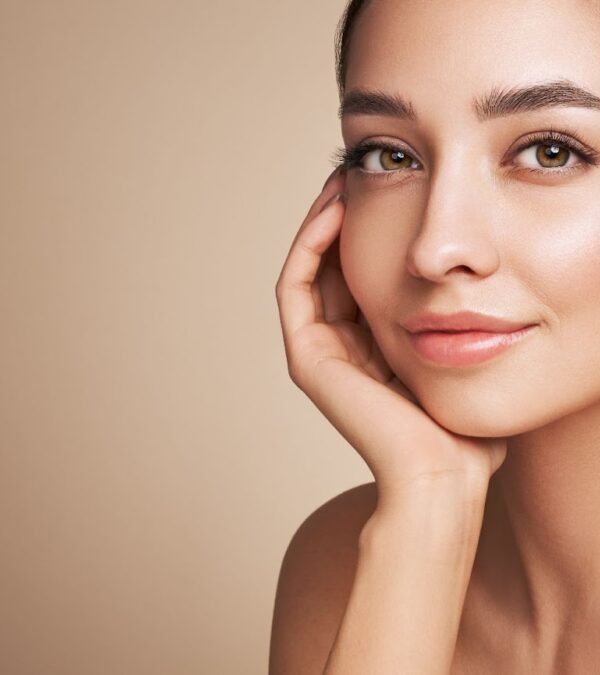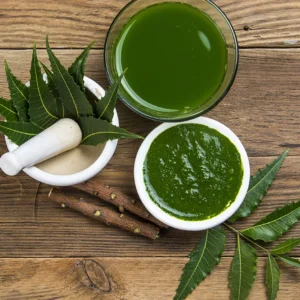Introduction
The delicate skin around your eyes is susceptible to various issues, including dryness, itchiness, and irritation. If you’ve ever experienced dry eyelids, you know how uncomfortable it can be. In this comprehensive guide, we will delve into the causes of dry eyelids, explore strategies for prevention, discuss effective treatments, and address frequently asked questions to help you understand and manage this common eye condition.
What Are Dry Eyelids?
Dry eyelids, also known as eyelid dermatitis or eczema, refer to a condition where the skin on and around the eyelids becomes dry, flaky, and often itchy. This condition can affect both the upper and lower eyelids and may be accompanied by redness, inflammation, or a feeling of tightness.
Causes of Dry Eyelids
Several factors can contribute to the development of dry eyelids:
- Environmental Factors: Dry air, especially in cold or windy weather, and low humidity levels can lead to moisture loss from the skin around your eyes.
- Allergies: Allergens like pollen, dust, pet dander, or certain cosmetics can trigger allergic reactions, resulting in dryness and irritation.
- Skin Conditions: Individuals with pre-existing skin conditions like eczema or psoriasis may experience flare-ups on their eyelids, leading to dryness and discomfort.
- Cosmetic Products: Some makeup or skincare products may contain harsh chemicals or fragrances that can irritate the sensitive skin around the eyes.
- Excessive Rubbing: Frequent rubbing or scratching of the eyes, whether due to allergies, fatigue, or a habit, can disrupt the skin’s natural moisture barrier.
Preventing Dry Eyelids
Taking preventive measures can help you avoid or minimize the occurrence of dry eyelids:
- Hydrate: Drink plenty of water to maintain overall skin hydration, which includes the skin around your eyes.
- Use Humidifiers: If you live in a dry climate or use heating or air conditioning systems, consider using a humidifier in your home to add moisture to the air.
- Choose Hypoallergenic Products: Opt for hypoallergenic and fragrance-free makeup and skincare products to reduce the risk of irritation.
- Be Gentle: Avoid excessive rubbing or touching of your eyes, which can cause skin irritation and worsen the condition.
- Remove Makeup Thoroughly: Always remove all makeup before bedtime using a gentle makeup remover to prevent clogged pores and dryness.
Treating Dry Eyelids
If you’re already experiencing dry eyelids, here are some effective treatments:
- Hydrating Creams: Apply a hypoallergenic and fragrance-free hydrating cream or ointment to the affected area. Seek out products containing ingredients such as ceramides, hyaluronic acid, or glycerin.
- Warm Compresses: Soothe dryness and relieve itching by using a clean, warm, damp cloth as a compress. Position it gently on your closed eyes for a few minutes.
- Avoid Irritants: Identify and eliminate any products or allergens that may be contributing to the issue. This includes discontinuing the use of harsh makeup or skincare products.
- Consult a Dermatologist: If your dry eyelids persist or worsen despite home remedies, consult a dermatologist or an eye specialist for a professional evaluation and treatment plan.
Frequently Asked Questions (FAQs)
Q1: Can dry eyelids cause vision problems?
A1: Dry eyelids typically do not directly affect vision. However, persistent rubbing or irritation of the eyes may lead to temporary blurred vision. If you experience visual disturbances, consult a healthcare professional.
Q2: Are there any home remedies for dry eyelids?
A2: Yes, in addition to the warm compresses mentioned earlier, you can try using over-the-counter hypoallergenic eye creams or ointments containing ingredients like petrolatum or ceramides. Nonetheless, seek guidance from a healthcare provider if the condition continues.
Q3: Can allergies cause dry eyelids?
A3: Yes, allergies can lead to dryness, itching, and redness of the eyelids. Identifying and managing allergens, such as pollen or pet dander, is crucial for alleviating symptoms.
Q4: Can I use natural oils to moisturize dry eyelids?
A4: Some natural oils like coconut oil or jojoba oil can be gentle and hydrating for the skin around your eyes. However, be cautious and perform a patch test to ensure you don’t have an adverse reaction. For personalized recommendations, it’s advisable to consult a dermatologist.
Q5: Can stress contribute to dry eyelids?
A5: Yes, stress can exacerbate various skin conditions, including dry eyelids. Practicing stress-reduction techniques like meditation, yoga, or deep breathing exercises may help improve your skin’s overall health.
Conclusion
Dry eyelids can be a bothersome condition, but with proper understanding and care, you can manage and alleviate its discomfort. By following skincare best practices, using gentle products, and seeking professional guidance when necessary, you can keep your eyelids comfortable and maintain healthy, hydrated eyes.








Leave a Reply